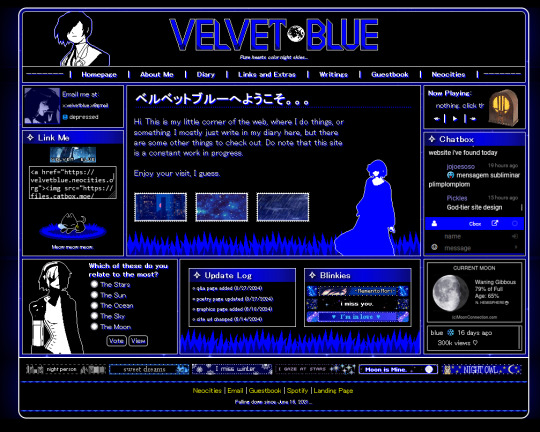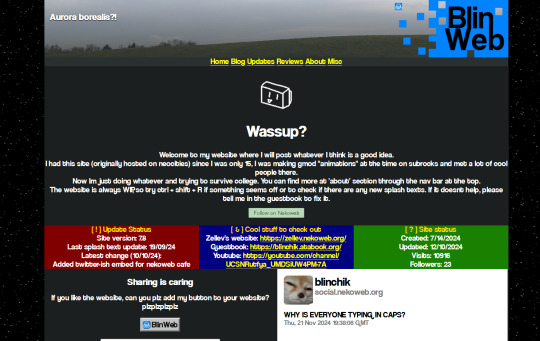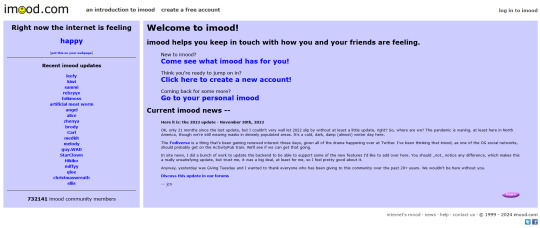#Google Cloud web hosting
Explore tagged Tumblr posts
Text
Cheap web hosting India plans start at Rs.199 per month and include a free SSL certificate, 99% uptime, 24*7 support, and unlimited storage, Our best cPanel hosting offers easy management and powerful features. Discover cheap web hosting in India with the best cPanel hosting services. Enjoy reliable performance, easy management, and 24/7 support. Perfect for websites of all sizes, our hosting plans offer affordability and quality. Start your online journey with top-notch hosting solutions. Book now for unbeatable prices! Visit:- https://cloud.zordo.in/

#Web Hosting Service#Google Cloud web hosting#Cheap SSL certificates#Best Cheap Web Hosting in India#best cheap web hosting providers in India#Best cPanel Hosting#best cPanel web hosting#Best Web Hosting Service Provider#cheap cPanel web hosting provider#Cheapest Web Hosting India#Cloud Hosting#cPanel hosting
3 notes
·
View notes
Text
How EaseMyTrip Capitalized on Controversy - Pulp Strategy

EaseMyTrip & Maldives boycott stance ignites social media. Was it a marketing win or a risky strategy? Dive into the debate and explore the power of sentiment analysis in branding.
#b2bdigitalmarketing#digital agency#digital content#google cloud web hosting#digitalagency#digitalmarketing#digital marketing
0 notes
Text
3 notes
·
View notes
Text
Redefine Customer Engagement with AI-Powered Application Solutions
In today’s digital landscape, customer engagement is more crucial than ever. ATCuality’s AI powered application redefine how businesses interact with their audience, creating personalized experiences that foster loyalty and drive satisfaction. Our applications utilize cutting-edge AI algorithms to analyze customer behavior, preferences, and trends, enabling your business to anticipate needs and respond proactively. Whether you're in e-commerce, finance, or customer service, our AI-powered applications can optimize your customer journey, automate responses, and provide insights that lead to improved service delivery. ATCuality’s commitment to innovation ensures that each AI-powered application is adaptable, scalable, and perfectly aligned with your brand’s voice, keeping your customers engaged and coming back for more.
#digital marketing#seo services#artificial intelligence#seo marketing#seo agency#seo company#iot applications#amazon web services#azure cloud services#ai powered application#android app development#mobile application development#app design#advertising#google ads#augmented and virtual reality market#augmented reality agency#augmented human c4 621#augmented reality#iot development services#iot solutions#iot development company#iot platform#embedded software#task management#cloud security services#cloud hosting in saudi arabia#cloud computing#sslcertificate#ssl
1 note
·
View note
Text
ao3 bookmarks wrapped (end of year) - interest survey
edit: try it out here!
Presents a summary of your stats from your bookmarks via some colourful graphs - only needs your html data uploaded. Completely automated, requires no programming knowledge, no use of dynamic web scraping, entirely cloud hosted, and your data is only stored privately on your google drive.




^ graphs above are script generated
sound like fun?
#please reblog if so :D#ao3 wrapped#ao3 statistics#harry potter#good omens#our flag means death#sherlock#merlin#fanfiction#red white and royal blue#doctor who#stranger things#ao3#call of duty#wolfstar#heartstopper#bbc ghosts#apologies for the number of tags
336 notes
·
View notes
Text
i have a loving and desperate reminder for folks working on large/long term projects in digital format:
it's unwise to make the "cloud" your primary location for data storage. making back-ups in them is fine, but the most secure place for your work is on an ext hard disk that you can detach from your machine, and on multiple copies if you can manage/afford it. (and dont forget to unplug your ext drives when not actively using them!!)
if you dont have access to a personal computer, the public library in your area likely has computers available that you can use. even if theyre not powerhouse machines, they can do what's needed in order for you to back up your stuff. using the internet there you can access your phone/tablet cloud storage online and copy your work onto your external drive. it's definitely inconvenient, but it's probably more convenient than losing your entire library of personal work, writing, and photos.
discord stopped hosting images not that long ago which broke a lot of hyperlinks for personal web projects, google is doing sinister google stuff and is probably going to continue to do so, and we're sort of teetering on a major data/archive crisis that definitely won't put people like us first. corporations are not interested in protecting you. you are the only person who can keep your artwork, writing, and photos secure. ❤️ 🙏
i love you ❤️ pls protect your passion projects ;-; dont let corps decide if your work lives or dies pls back up your digital stuff
#barbossa voice#u best be believin in a cyberpunk hellscape#ur in one#i want to be able to read your projects ;-;
50 notes
·
View notes
Text
The global backlash against the second Donald Trump administration keeps on growing. Canadians have boycotted US-made products, anti–Elon Musk posters have appeared across London amid widespread Tesla protests, and European officials have drastically increased military spending as US support for Ukraine falters. Dominant US tech services may be the next focus.
There are early signs that some European companies and governments are souring on their use of American cloud services provided by the three so-called hyperscalers. Between them, Google Cloud, Microsoft Azure, and Amazon Web Services (AWS) host vast swathes of the internet and keep thousands of businesses running. However, some organizations appear to be reconsidering their use of these companies’ cloud services—including servers, storage, and databases—citing uncertainties around privacy and data access fears under the Trump administration.
“There’s a huge appetite in Europe to de-risk or decouple the over-dependence on US tech companies, because there is a concern that they could be weaponized against European interests,” says Marietje Schaake, a nonresident fellow at Stanford’s Cyber Policy Center and a former, decade-long member of the European Parliament.
The moves may already be underway. On March 18, politicians in the Netherlands House of Representatives passed eight motions asking the government to reduce reliance on US tech companies and move to European alternatives. Days before, more than 100 organizations signed an open letter to European officials calling for the continent to become “more technologically independent” and saying the status quo creates “security and reliability risks.”
Two European-based cloud service companies, Exoscale and Elastx, tell WIRED they have seen an uptick in potential customers looking to abandon US cloud providers over the last two weeks—with some already starting to make the jump. Multiple technology advisers say they are having widespread discussions about what it would take to uproot services, data, and systems.
“We have more demand from across Europe,” says Mathias Nöbauer, the CEO of Swiss-based hosting provider Exoscale, adding there has been an increase in new customers seeking to move away from cloud giants. “Some customers were very explicit,” Nöbauer says. “Especially customers from Denmark being very explicit that they want to move away from US hyperscalers because of the US administration and what they said about Greenland.”
“It's a big worry about the uncertainty around everything. And from the Europeans’ perspective—that the US is maybe not on the same team as us any longer,” says Joakim Öhman, the CEO of Swedish cloud provider Elastx. “Those are the drivers that bring people or organizations to look at alternatives.”
Concerns have been raised about the current data-sharing agreement between the EU and US, which is designed to allow information to move between the two continents while protecting people’s rights. Multiple previous versions of the agreement have been struck down by European courts. At the end of January, Trump fired three Democrats from the Privacy and Civil Liberties Oversight Board (PCLOB), which helps manage the current agreement. The move could undermine or increase uncertainty around the agreement. In addition, Öhman says, he has heard concerns from firms about the CLOUD Act, which can allow US law enforcement to subpoena user data from tech companies, potentially including data that is stored in systems outside of the US.
Dave Cottlehuber, the founder of SkunkWerks, a small tech infrastructure firm in Austria, says he has been moving the company’s few servers and databases away from US providers to European services since the start of the year. “First and foremost, it’s about values,” Cottlehuber says. “For me, privacy is a right not a privilege.” Cottlehuber says the decision to move is easier for a small business such as his, but he argues it removes some taxes that are paid to the Trump administration. “The best thing I can do is to remove that small contribution of mine, and also at the same time, make sure that my customers’ privacy is respected and preserved,” Cottlehuber says.
Steffen Schmidt, the CEO of Medicusdata, a company that provides text-to-speech services to doctors and hospitals in Europe, says that having data in Europe has always “been a must,” but his customers have been asking for more in recent weeks. “Since the beginning of 2025, in addition to data residency guarantees, customers have actively asked us to use cloud providers that are natively European companies,” Schmidt says, adding that some of his services have been moved to Nöbauer’s Exoscale.
Harry Staight, a spokesperson for AWS, says it is “not accurate” that customers are moving from AWS to EU alternatives. “Our customers have control over where they store their data and how it is encrypted, and we make the AWS Cloud sovereign-by-design,” Straight says. “AWS services support encryption with customer managed keys that are inaccessible to AWS, which means customers have complete control of who accesses their data.” Staight says the membership of the PCLOB “does not impact” the agreements around EU-US data sharing and that the CLOUD Act has “additional safeguards for cloud content.” Google and Microsoft declined to comment.
The potential shift away from US tech firms is not just linked to cloud providers. Since January 15, visitors to the European Alternatives website increased more than 1,200 percent. The site lists everything from music streaming services to DDoS protection tools, says Marko Saric, a cofounder of European cloud analytics service Plausible. “We can certainly feel that something is going on,” Saric says, claiming that during the first 18 days of March the company has “beaten” the net recurring revenue growth it saw in January and February. “This is organic growth which cannot be explained by any seasonality or our activities,” he says.
While there are signs of movement, the impact is likely to be small—at least for now. Around the world, governments and businesses use multiple cloud services—such as authentication measures, hosting, data storage, and increasingly data centers providing AI processing—from the big three cloud and tech service providers. Cottlehuber says that, for large businesses, it may take many months, if not longer, to consider what needs to be moved, the risks involved, plus actually changing systems. “What happens if you have a hundred petabytes of storage, it's going to take years to move over the internet,” he says.
For years, European companies have struggled to compete with the likes of Google, Microsoft, and Amazon’s cloud services and technical infrastructure, which make billions every year. It may also be difficult to find similar services on the scale of those provided by alternative European cloud firms.
“If you are deep into the hyperscaler cloud ecosystem, you’ll struggle to find equivalent services elsewhere,” says Bert Hubert, an entrepreneur and former government regulator, who says he has heard of multiple new cloud migrations to US firms being put on hold or reconsidered. Hubert has argued that it is no longer “safe” for European governments to be moved to US clouds and that European alternatives can’t properly compete. “We sell a lot of fine wood here in Europe. But not that much furniture,” he says. However, that too could change.
Schaake, the former member of the European Parliament, says a combination of new investments, a different approach to buying public services, and a Europe-first approach or investing in a European technology stack could help to stimulate any wider moves on the continent. “The dramatic shift of the Trump administration is very tangible,” Schaake says. “The idea that anything could happen and that Europe should fend for itself is clear. Now we need to see the same kind of pace and leadership that we see with defense to actually turn this into meaningful action.”
7 notes
·
View notes
Text
Proton, the secure-minded email and productivity suite, is becoming a nonprofit foundation, but it doesn't want you to think about it in the way you think about other notable privacy and web foundations.
"We believe that if we want to bring about large-scale change, Proton can’t be billionaire-subsidized (like Signal), Google-subsidized (like Mozilla), government-subsidized (like Tor), donation-subsidized (like Wikipedia), or even speculation-subsidized (like the plethora of crypto “foundations”)," Proton CEO Andy Yen wrote in a blog post announcing the transition. "Instead, Proton must have a profitable and healthy business at its core."
The announcement comes exactly 10 years to the day after a crowdfunding campaign saw 10,000 people give more than $500,000 to launch Proton Mail. To make it happen, Yen, along with co-founder Jason Stockman and first employee Dingchao Lu, endowed the Proton Foundation with some of their shares. The Proton Foundation is now the primary shareholder of the business Proton, which Yen states will "make irrevocable our wish that Proton remains in perpetuity an organization that places people ahead of profits." Among other members of the Foundation's board is Sir Tim Berners-Lee, inventor of HTML, HTTP, and almost everything else about the web.
Of particular importance is where Proton and the Proton Foundation are located: Switzerland. As Yen noted, Swiss foundations do not have shareholders and are instead obligated to act "in accordance with the purpose for which they were established." While the for-profit entity Proton AG can still do things like offer stock options to recruits and even raise its own capital on private markets, the Foundation serves as a backstop against moving too far from Proton's founding mission, Yen wrote.
There’s a lot more Proton to protect these days
Proton has gone from a single email offering to a wide range of services, many of which specifically target the often invasive offerings of other companies (read, mostly: Google). You can now take your cloud files, passwords, and calendars over to Proton and use its VPN services, most of which offer end-to-end encryption and open source core software hosted in Switzerland, with its notably strong privacy laws.
None of that guarantees that a Swiss court can't compel some forms of compliance from Proton, as happened in 2021. But compared to most service providers, Proton offers a far clearer and easier-to-grasp privacy model: It can't see your stuff, and it only makes money from subscriptions.
#proton#protonmail#surveillance capitalism#privacy#social media#artificial intelligence#big tech#technology#google#nonprofit
22 notes
·
View notes
Text
By Sesona Mdlokovana
Understanding Data Colonialism
Data colonialism is the unregulated extraction, commodification and monopolisation of data from developing countries by multinational corporations that are primarily based in the West. Companies like Meta (outlawed in Russia - InfoBRICS), Google, Microsoft, Amazon and Apple dominate digital infrastructures across the globe, offering low-cost or free services in exchange for vast amounts of governmental, personal and commercial data. In countries across Latin America, Africa and South Asia, these tech conglomerates use their technological and financial dominance to enforce unequal digital dependencies. For example:
- The dominance of Google in cloud and search services means that millions of government institutions and businesses across the Global South store highly sensitive data on Western-owned servers, often located outside of their jurisdictions.
- Meta controlling social media platforms such as WhatsApp, Facebook and Instagram has led to content moderation policies that disproportionately have serious impacts on non-Western voices, while simultaneously profiting from local user-generated content.
- Amazon Web Services (AWS) hosts an immense amount of cloud storage and creates a scenario where governments and local startups in BRICS nations have to rely on foreign digital infrastructure.
- AI models and fintech systems rely on data from Global South users, yet these countries see little economic benefit from its monetisation.
The BRICS bloc response: Strengthening Digital Sovereignty In order to counter data colonialism, BRICS countries have to prioritise strategies and policies that assert digital sovereignty while facilitating indigenous technological growth. There are several approaches in which this could be achieved:
2 notes
·
View notes
Note
if you have a spare computer or laptop or whatever, that can be used to host a website too I think. It's just the domain that's the problem I think. I've only got surface level knowledge tho because I've considered turning my old laptop into a server so I can self host my own fucking cloud for writing (I hate Google docs)
Yea! I know a person who's hosting their whole website off a raspberry pi somehow. I'll admit I'm not all quite that advanced with it just yet. That's mostly why I stick to things like Neocities/NekoWeb but I know you can (somehow) absolutely host a website off a spare computer/laptop/pi.
I really want to learn more about that because it sounds really cool honestly. I love what all can be done with the indie web. I worry that people often see what I say as me pointing a finger at people going "you're lazy, you're complacent, you're part of the problem!" When in reality what I'm TRYING to say is "hey the internet is YOURS and centralized web wants you to believe it's THEIRS and you could have so much more than this if you just take a little while to understand how."
---| EDITOR'S NOTE HERE: I'M ABOUT TO GO OFF ON A MAJOR TANGENT ABOUT THIS I'M SO SORRY |---
Like I have had to explain how web surfing works to people, and I think there's this sense of like, I don't want to say guilt but almost like people think you're looking down on them? Because I grew up during a time when we didn't have centralized web, Facebook and MySpace were considered this kinda new and weird thing. I remember when the norm on the internet was "why would I ever want to tell strangers online what I've been doing? That's my business!" Now it's more of like "why wouldn't you? Do you have something to HIDE?!" Which is just... ugh.
The thing that's often difficult for people is that we've almost grown so used to having this "feed" or "dashboard" of content to look at. We want to see exclusively our specifically curated list of content creators. I don't necessarily have anything against that, but modern internet users just have lost the knowledge of how we used to surf the web. If it's not "on google" and it's not "on my dashboard" it may as well be hidden behind 8 layers of encryption, in a language they can't read. That sounds like judgement or like I'm saying "I'm so much better than those modern internet plebs" but in reality it's just an observation that makes me sad.
I recently met a fellow netizen who recently found the indie web, and I was talking to them about how they learned to actually surf the indie web. Specifically how difficult it was for them to grasp the idea because of two big things. The first being that they didn't know where to find "content" and the second being that they didn't want to leave the sphere of their "mutuals."
All of which is Social Media brained thinking, but that's just "the internet" for most modern internet users. If you go on Twitter/X, Tumblr, YouTube, whatever; you're going to find people talking about "Content" whether it's making content, viewing content; they're talking about a product essentially. It's the idea of like "I want new art to look at" or "I want a new video to watch" or "I want a funny meme to laugh at" but it's become "I want content from this content creator I follow to fuel my enjoyment of the internet." Which isn't necessarily an inherently bad thing, but becomes a little bit of a problem when we realize that people creating things for the love of creating; isn't seen as valuable, because it's not monetizable content. You can't say "hey guys subscribe to my patreon and get an exclusive behind the scenes look at my About Me page on my website." That just doesn't work. If you run ads on your website, people just find it annoying; and just won't use your website outright.
I've been asked what the purpose of having your own website is, to which I was kinda stumped because I kinda sat there like "why do you want your own anything?" Would you settle for exclusively renting a car, where you couldn't paint it or decorate it or do anything with it that your rental company doesn't approve of? I mean hell look at how much people hate the HOA right? Centralized web is the HOA of the internet. If you have your own website, with your own webrings, and you frequent forums that foster a community around your interests; then you're not being censored or controlled by some CEO with different ideals. You're not being told what can or cannot be on your blog. You're not being told "this post has adult content" when it says the "T Word" that tumblr hates so much. People always tell me they hate tumblr but they refuse to get off it. Unless of course they can go to Bluesky or Mastodon, or whatever other Centralized Website makes it easy and hassle free. The problem then becomes that those websites are just as controlling and censor what they have to say or outright ban users for speaking their mind.
But like, the biggest thing for me is that a lot of people just don't even know how to really START with the indie web. They don't know how to find forums, they don't know how to build a website; they don't know how to host a website or code a website. I cannot tell you how many people are told they can go from having a page that looks like this:

You know, header image, profile picture; random little blurb and title, no personality; blank colored borders; "look at my content" kinda shit.
To having a website that looks however they want, like:




and then they get all excited because like, hell yea man look how much personality there is here! These are just 4 websites I pulled randomly. Each looks entirely different, each has it's own personality and navigation style and each is full of stuff to explore and check out.
Then they hear that all you need to do is learn HTML and as soon as they hear that it's over, I've lost them; they're GONE because they think "ok but I'm not smart enough to learn CODING" and it's like, dude chill.
I can't explain to people that big centralized web really do want to keep you stupid. You aren't stupid, you can learn HTML EASILY, I promise you if you sit down and pay attention to like a half hour video on coding; you'll be able to make a website. If you listen to a 4 hour video on coding you'll be able to make such a cool unique website you're genuinely happy with it.
But the big thing people don't get is that you don't NEED a fancy website or graphics or navigation or whatever. I'm part of a webring and I have 2 websites currently. One that I run personally, one that I run with a few other people. The thing about those is that they're both constantly under construction and almost never actually look like the examples you see above because myself and the others I work with are all still learning HTML.
I'm still in a webring, I still have people who actually use my button to link back to my website and vice versa. I have internet "neighbors" despite the fact my website is not at all impressive. Because the internet isn't for content it's creation for the love of creation.
I get people all the time who tell me they LOVE Hypnospace Outlaw and "wish the internet was really like that" to which I say, "oh you mean indie websites hosted by a webmaster rather than a company with everyone having a unique aesthetic and they're all connected via webrings and categories of their interests?" To which people go "yea that's not real" and I'm sitting here like:


^ They're the same picture.




I mean okay hell come on THIS is part of a website I found:

The indie web is so incredible to me, and it doesn't end with just exploring various websites. I've found forums, I've found webrings for video games or apps; I've found CSS scripts to turn my discord into THIS without needing nitro:

Which I fully admit is a matter of preference; but I enjoy it having more personality without having to pay monthly or whatever for discord of all things. All because I happened to stumble across a website that was part of a webring that lead to another website where I checked the personal projects of the individual and found this old CSS script they were working on; and thought it was cool.
The internet isn't just boring social media that we have to refresh every 5 minutes to get more funny memes; it's a communal place where anyone and everyone can create whatever they want and share it with the world. It's unfortunately very hard for me to explain to people that the Web Revival Movement isn't some like, hardcore manifesto down with the corporations communism thing. It's literally a set of values that a LOT of people on the indie web have. It's not even really a "movement" in the traditional sense. I've seen a lot of youth who get involved quickly lose steam with it, because they're expecting something that it's just, not.
There's a post on a forum from a user that basically said they didn't care for the Web Revival Movement and what's interesting is their reason why:

This user is still a minor and it's very likely they grew up with social media and "communities" when the Web Revival Movement IS actually just a method. It's a mindset, it's a ideal that a lot of people have and that we tend to follow; it is NOT a community, it is NOT a group of people fighting some fight against social media or whatever.
Another user talking about the web revival "community" likely doesn't help this feeling any, seeing as how some DO view it as a community; but pay attention to what they're saying here:

"The community of Web Revivalists" Alright, let's see if we can find them!

Huh... wait hold on let me just try searching in general for websites being created by people...

Huh okay there's a lot, but none of these websites are specifically talking about a "Web Revival Movement" none of them are out here preaching about some community or anti-capitalist ideals or how they hate social media. They're just, websites. So then how are they part of the Web Revival Movement exactly?!
Well the thing about the Web Revival is that it's about reclaiming tech and figuring out what it is we want from the tech/tools in our lives.
To put it really simply:

What this is saying is that all those websites are technically part of the "Web Revivalist Community" because they simply put, are online spaced that express the ideals by just... being created.
It's not that this is some community in the sense that You and I belong to The Movement. It's a community in the same way I live in a community, because I live on the same street as my neighbors. It's a community in the same way you could call a group of people who all play an MMORPG a "community" or a fandom a "community" or whatever.
You don't NEED to take any specific action, we're not fighting to make the web a better place through some kind of radical action, we view simply existing in a world that is so centralized; a radical action.
Which is why you have these young activists coming in going "okay I need to abandon everything that isn't anti-capitalist, anti social media, and anti-web3 I need to be an activist, I need everyone to know that I'm creating TO REBEL, I need to make the web a better place, I need to do this I need to do that even though I don't find it fun! Hey guys the internet isn't really fun :("
Personally I do my best to spread the word about webhosts like Neocities, Nekoweb, Teacake, Leprd.space, tiiny.host, ichi.city, tilde.town, and DigitalOcean for more advanced webhosting.
I genuinely feel like people would enjoy the indie web if they knew where to look for it, or knew how to explore it better. I mean look at the way people talk about it in comparison to social media:



That being said allow me to try to lend a hand to anyone and everyone who may have read this and thought "well I'd love to start exploring websites but I don't know how!" It's easy I promise, just follow these easy steps:
Find whatever hosting website you want to start with; for me it's gonna be Neocities because I am most familiar with it, just find the first website that looks interesting or do what I'm going to do for this example and click random and then click the first website it recommends. In this case we're looking at this:

Alright it seems we've landed on a yaoi enthusiast website, hey why not. Now here's the thing, you can freely explore this website as you see fit, check out the about, sign the guest book (that's where you can leave a little comment saying whatever, they're fun.) Look through some shrines, explore the site; because someone put effort and work into this, but you're looking as well for a part of the website with some kind of link to a webring or another website.
In this case if we scroll right past the yaoi paddle and look at the bottom middle of the site we see this:

So these little buttons are essentially personalized links to websites. They're fairly common to have, in fact you can see the webmaster of this site offers their button if you want to link back to them. This isn't something exclusively for mutuals. If I like your website a lot and want to link to it, I use that button there to embed your button on my site and now whenever I access my homepage I have a direct, fast, and fancy link to your website just kinda... there. However for our purposes today we're just exploring the web, so any of these site buttons will do. If none of these interest you, use them as a sort of in between to get to the next; typically though if you're looking at sites that you actually have an interest in, you'll be able to find corresponding websites that are also on the topic of that kind of thing. The best part about this is that it typically leads to a webring which contains a bunch of websites all featuring the same sort of aesthetic, interest; or thing. You can even become a member of that webring.
That's it. It's a 2 step process you repeat for however long you want.
You'll often see people using either imood:

Or Status.cafe:

to have some kind of "this user is feeling this kind of way" thing. This is another big thing on the indie web. We tend to embed a lot of off-site features onto our sites. So get familiar with what other people use. You can easily find these sorts of things by just clicking around. For example that bit above in the first image that says "Seven is feeling... Splendid" if clicked, will take you to imood.
Remember, these sites use HTML, and your site uses HTML, and HTML can literally be viewed, edited, copied, etc. By just using inspect element on something and then looking through all the source code.
It's that thing that looks like this:

You can literally try this right now here on tumblr if you're curious about it. But I say this because it means that while you're out exploring the web, anything you see that you like; you can just kinda... copy the source code for. Why not? You're not hurting anyone! I promise. Learn from other webmasters like this.
The big thing about the indie web is that you get out what you put in. A site like Tumblr or Twitter or Facebook makes it very easy to make an account, but that's all you get; an account. You can't really customize it much, you can't really make it your own. You get out what you put in, you can't really put a lot of effort into it, and you'll not really get a lot out of it either. The indie web gives you literally a blank page and says "hey, code whatever you want in here!" So you can really just... code whatever you want into your website.
I'm more than happy to help explain HTML to people or help provide links to YouTube videos that sort of go over the very basics. If anyone is actually interested in getting their own website I'm happy to help however I can.
3 notes
·
View notes
Text
#Web Hosting Service#Google Cloud web hosting#Cheap SSL certificates#Best Cheap Web Hosting in India#best cheap web hosting providers in India#Best cPanel Hosting#best cPanel web hosting#Best Web Hosting Service Provider#cheap cPanel web hosting provider#Cheapest Web Hosting India#Cloud Hosting#cPanel hosting
2 notes
·
View notes
Text
The CMO’s Guide to CX in 2024: Navigate Turbulence and Drive Growth - Pulp Strategy

Explore the CMO's Guide to CX in 2024, navigating economic turbulence for brand growth and customer loyalty. Uncover key trends, strategies, and the imperative shift towards customer-centricity for success in the evolving marketing landscape.
0 notes
Text
2 notes
·
View notes
Text
Unlocking Potential Through Immersive VR-Based Training Solutions
Atcuality is dedicated to unlocking human potential through VR-based training solutions that push the boundaries of traditional learning methods. In industries where hands-on experience is crucial, VR allows trainees to engage in realistic scenarios without leaving the training room. Our VR-based training solutions are designed to provide the kind of experiential learning that helps individuals not just understand but deeply internalize crucial skills. From medical procedures to machinery operation, these immersive training environments offer flexibility and safety, removing the limitations of traditional learning setups. By simulating high-risk or complex tasks, learners can gain valuable experience while mitigating actual risks. With Atcuality’s VR training, companies can ensure their workforce is prepared for real-world challenges, resulting in enhanced safety, improved skill levels, and reduced onboarding and training costs. Our commitment to advancing training standards is evident in our ability to offer highly customizable, impactful VR experiences across various industries.
#digital marketing#seo optimization#seo company#seo changbin#seo services#seo agency#seo marketing#emailmarketing#search engine optimization#google ads#socialmediamarketing#ai services#iot#iotsolutions#iot applications#iot development services#iot platform#digitaltransformation#techinnovation#cloud hosting in saudi arabia#cloud server in saudi arabia#cloud computing#amazon web services#amazon services#mobile app development company#mobile app developers#mobile application development#app developers#app development company#azure cloud services
0 notes
Text
Web Hosting Market Outlook 2025-2033: Opportunities and Growth
Web Hosting Market Research Report
Market Strides has recently added a new report to its vast depository titled Global Web Hosting Market. The report studies vital factors about the Global Web Hosting Market that are essential to be understood by existing as well as new market players. The report highlights the essential elements such as market share, profitability, production, sales, manufacturing, advertising, technological advancements, key market players, regional segmentation, and many more crucial aspects related to the Web Hosting Market.
Get Free Sample Report PDF @ https://marketstrides.com/request-sample/web-hosting-market
Web Hosting Market Share by Key Players
InMotion Hosting
Bluehost
Hetzner Online
A2 Hosting
Liquid Web
Google
Amazon Web Services
Squarespace
HostGator
1&1
IBM Cloud
GoDaddy
DreamHost
Hostinger

Web Hosting Market Segmentation
The report on Global Web Hosting Market provides detailed toc by type, applications, and regions. Each segment provides information about the production and manufacturing during the forecast period of 2025-2033 . The application segment highlights the applications and operational processes of the industry. Understanding these segments will help identify the importance of the various factors aiding to the market growth.
The report is segmented as follows:
By Type
Website Builders
Shared Hosting
Dedicated Hosting
Collocated Hosting
By Application
Public Website
Intranet Site
Mobile Application
Online Application
Get Detailed @ https://marketstrides.com/report/web-hosting-market
Web Hosting Market Frequently Asked Question
1) What are Web Hosting Market and why are they important?
2) What is the future outlook for the Web Hosting Market?
3) What are the Segments Covered in the Market?
4) Who are the prominent key players in the Market?
Key Highlights
It provides valuable insights into the Web Hosting Market.
Provides information for the years 2025-2033. Important factors related to the market are mentioned.
Technological advancements, government regulations, and recent developments are highlighted.
This report will study advertising and marketing strategies, market trends, and analysis.
Growth analysis and predictions until the year 2032.
Statistical analysis of the key players in the market is highlighted.
Extensively researched market overview.
Buy Web Hosting Market Research Report @ https://marketstrides.com/buyNow/web-hosting-market
Contact Us:
Email : [email protected]
#Web Hosting Market Size#Web Hosting Market Share#Web Hosting Market Growth#Web Hosting Market Trends#Web Hosting Market Players
3 notes
·
View notes
Text
The Benefits of Cloud Hosting for Small Business
In the past, hosting websites and apps just required paying a digital platform provider to rent out a single server or computing cluster. Services for web hosting have existed for as long as the internet. Over the past ten years, cloud hosting where the website or application resides on virtual servers dispersed across the cloud has emerged as a popular way to make digital assets accessible online.
A worldwide content delivery network can be connected to by Google Cloud to provide customers with optimal speed and minimal latency when serving material, or a domain can be registered and managed. Google Cloud also provides a range of hosting options for websites and applications.

What is cloud hosting?
Your data is stored on several servers rather than on a single server, which is what is meant by the term "cloud hosting." The term "cloud" refers to this network of several servers that collaborate to form the network. Cloud hosting services are currently being utilized by a multitude of businesses, both large and small. An investment of this kind is definitely worth the rewards, and it has the potential to achieve great things for your company.
You will have a single platform from which you can manage all of your applications and databases, which will allow you to streamline your operations. The productivity of your firm can also be improved by making an investment in cloud infrastructure resources. The various advantages of cloud hosting will be discussed in further depth in the following paragraphs.
Cloud hosting’s Significance for Small Businesses-
Adopting cloud computing has becoming increasingly important for small organizations. It helps small businesses to avoid the high initial investment and ongoing maintenance costs of having internal IT infrastructure. Small businesses can now access advanced technologies and capabilities that were previously exclusive to large organizations by utilizing the cloud.
What are the applications of cloud computing?
Although you might not be aware of it, there is a good chance that you are currently utilizing cloud computing. Whether you use an online service such as Gmail or Outlook 365 to send an email, collaborate on a document, save data, or stream a video, cloud computing makes it feasible behind the scenes to do all of these things.
Cloud Hosting:
Cloud hosting services make it possible to share a variety of information, such as using email services, hosting applications, using web-based phone systems, and storing data. Hosting your company's website, managing databases, and storing domain names are all things that may be done with a cloud hosting service. The fact that cloud hosting services are located offsite makes it simple to scale up in order to handle peak loads.
Backup services:
Backup services in the cloud are failsafe solutions that can be utilized in the event that your company suffers a server disaster, cyberattack, or other type of data loss. Storage, data synchronization and restoration, real-time backups, archiving, and a high level of security are all features that are included in the top cloud backup services. A great number of cloud storage firms now offer cloud backup and storage capabilities.
Storage in the cloud:
Cloud services guarantee that your data is stored in a cloud storage system that is located offsite, making it more convenient to access from any device or place that is linked to the internet. In cloud storage, you are able to securely exchange information with others and synchronize files across several devices. Companies such as Dropbox, Microsoft OneDrive, and Google Drive are examples of well-known cloud storage services.
Software as a service
Software as a service, also known as SaaS, is a solution for the distribution of applications that is hosted in the computer's cloud. SaaS solutions can be utilized by businesses in a variety of operational domains. For instance, you may adopt software for customer relationship management (CRM) that is hosted on the cloud, such as Salesforce, for the purpose of managing sales, accounting software, such as QuickBooks Online, for managing finances, and email marketing software for improving marketing communications.
Cloud Solutions' Advantages for Small Businesses-
Affordable
Small firms can minimize their expenditures on hardware, software licenses, and information technology by switching to cloud-based services, which results in cost savings. Companies that provide cloud computing services often provide a pay-as-you-go approach, which enables organizations to only pay for the resources and services that they actually employ.
Protection of Sensitive Information and Disaster Recovery
Cloud service companies adopt stringent security procedures to protect vulnerable information. In addition to this, they provide solutions for disaster recovery and automatic backups, which serves to ensure that vital corporate information is safeguarded, quickly recoverable, and less likely to be lost.
Scalability:
Cloud hosting solutions enable small businesses to swiftly scale their operations up or down as needed without the inconvenience and expense of physically upgrading their gear and software. Scalability includes the ability to scale up or down activities. This flexibility enables adaptability and growth prospects, both of which are essential in a market that is very competitive.
Advantage in the Market
Cloud hosting solutions give small firms the ability to compete on an equal playing field with larger organizations, which gives them a competitive advantage. It is possible for them to obtain insights, streamline operations, and make decisions based on data without breaking the bank by utilizing sophisticated software, analytics tools, and advanced information technology.
Flexibility
As a result of the fact that all that is required to access the cloud is an internet connection, one of the advantages of cloud hosting is that it provides direct remote access to the data that is pertinent to all of your employees, including yourself. If you run a small business, it's possible that you don't have the financial resources to purchase a dedicated office space. People are able to work from any location they choose thanks to this cloud-based technology. Having the ability to operate from a remote location is more important than ever before for the success of a company, especially in light of the recent epidemic.
Increased Capacity for Collaboration and Adaptability
Cloud solutions enable small businesses to communicate with remote team members, clients, and partners in a seamless manner, which helps improve the flexibility and collaboration capabilities of these firms. It makes it possible to share files in real time, modify them simultaneously, and gain access to the most recent versions of documents, all of which contribute to increased productivity and efficiency.
The Most Recent Technology
Cloud hosting eliminates the need for you to worry about the possibility of automatically upgrading and customizing your servers, in contrast to traditional hosting, which does not permit such activities. Scalability is something that may be easily achieved as your company expands and your requirements and preferences shift.
Because cloud hosting businesses are experts in this kind of technology, this is something that can be easily accomplished. Since they have access to more resources, they are able to undertake research and construct systems that are more robust and powerful. You will have access to the most cutting-edge technologies available if you make an investment in cloud infrastructure.
Very little to no upkeep is required
Recall what I mentioned earlier regarding the safety concerns associated with cloud computing. That being said, a portion of that security necessitates the routine maintenance of servers, the updating of software, and the administration of networks. The good news is that cloud computing relieves you of the responsibility of doing all of that upkeep and instead places it in the hands of skilled specialists.
Because none of the equipment is hosted by you, you do not need to be concerned about purchasing newer versions of it every three to four years. You are not required to deal with any of that maintenance, which frees up more time for your firm to concentrate on the product or service that it offers.
Remote access
When it comes to cloud computing, your email account is the ideal illustration. Providing that you have your login credentials and an internet connection, you are able to access your consolidated email account from any computer. Cloud computing is appealing to a majority of businesses because of the convenience it provides. Your colleagues and you will be able to access your work from any location in the globe thanks to the cloud, which eliminates the need to store your work on a desktop computer or on a local area network (LAN) server that is not linked to the internet. Your productivity and freedom in your workspace will both increase as a result of this remote access.
Conclusion-
Through the simplification of procedures and the facilitation of real-time collaboration among members of a team, cloud computing has the potential to boost both efficiency and productivity. It is possible for teams to collaborate effectively regardless of their geographical location or the time zone differences between them if they have shared access to documents and files. In addition, many cloud-based services provide automation technologies that reduce the amount of manual work that employees have to perform, such as data entry or report production. This allows employees to concentrate on high-value tasks that contribute to the success of the company.

Dollar2host Dollar2host.com We provide expert Webhosting services for your desired needs Facebook Twitter Instagram YouTube
3 notes
·
View notes